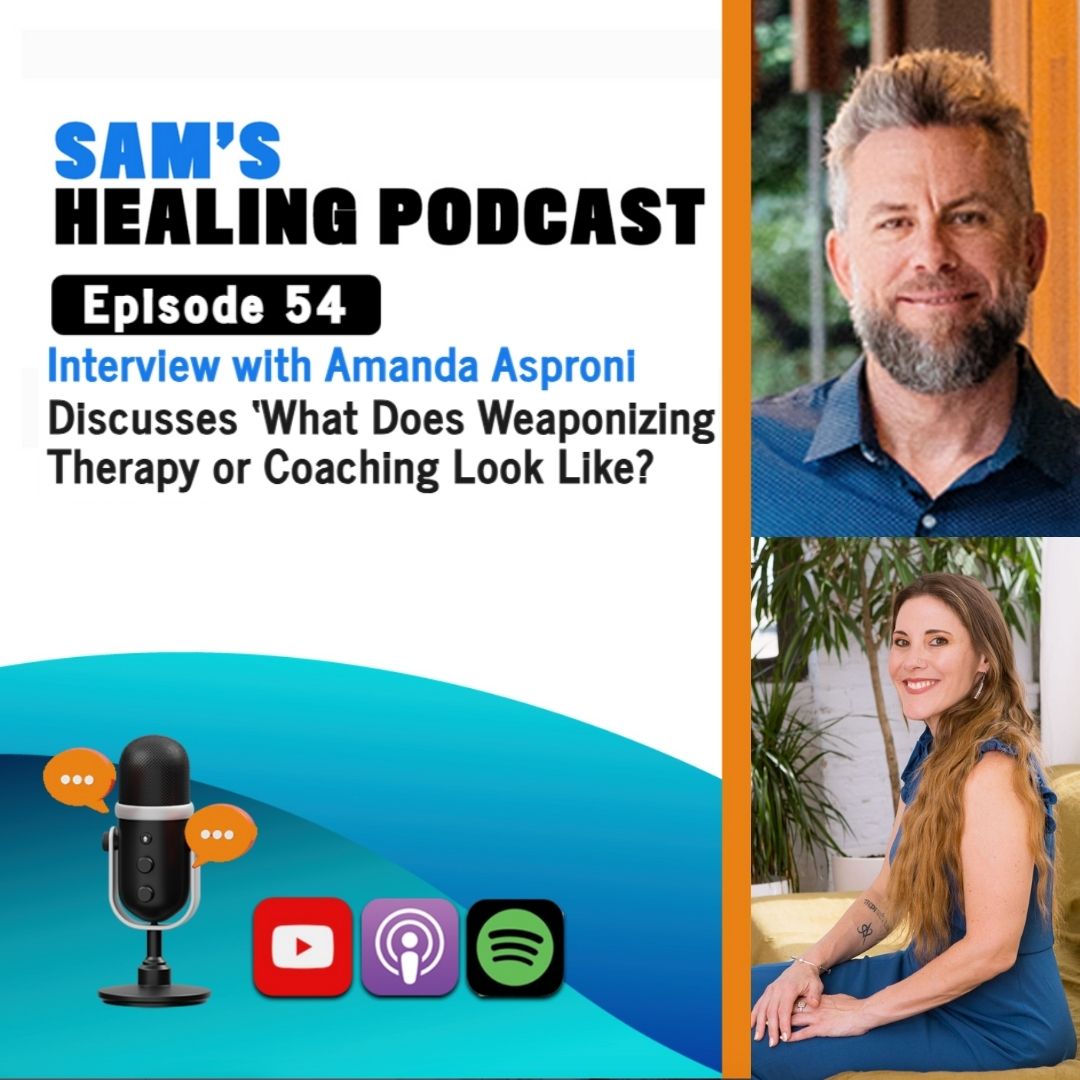Podcast Episode Details
Back to Podcast Episodes
EP 54: Guest Amanda Asproni Discusses: What Does Weaponizing Therapy or Coaching Look Like?
Season 1 Episode 54
When infidelity or addiction has shaken a relationship, couples often turn to coaching or therapy for healing. These tools are designed to help people rebuild trust, understand pain, and create healthier patterns. At their best, they provide safety, empathy, and clarity. But when the language and frameworks of therapy or coaching are misused, they can become weapons. Instead of supporting healing, they deepen wounds, reinforce blame, and prevent genuine repair.
After cheating or addiction, emotions are raw. One partner may grasp at therapy concepts to regain control or avoid accountability.
Common misuses include:
Pathologizing: Labeling the hurt partner as "codependent" or "trauma-bonded" instead of acknowledging their pain. Playing therapist: Acting like the "expert" in recovery rather than an equal participant. Gaslighting with therapy-speak: Saying, "This is just your trauma—it's not about me," to minimize betrayal. Misusing boundaries: Declaring boundaries as a way to dodge hard conversations, e.g., "I won't discuss the affair again—it's crossing my boundary." Exploiting disclosures: Using what a spouse revealed in therapy (such as past wounds) as ammunition during conflict.
These tactics shift focus away from accountability and silence the betrayed partner's voice, halting healing before it can even begin.
Infidelity and addiction often leave the offending partner flooded with guilt and shame, and the hurt partner overwhelmed by anger and grief. In this fragile space, weaponizing therapy language can become a defense mechanism. The unfaithful spouse may use it to deflect responsibility. The betrayed spouse may use it to label and control. Both can misuse "healing" jargon as armor against vulnerability.
When therapy language is weaponized in recovery:
Trust erodes further—the betrayed partner may feel manipulated or dismissed instead of heard. Shame deepens—labels like "damaged goods" or "triggered" or "once a cheater always a cheater" can compound existing pain and keep couples stuck. Repair stalls—genuine accountability and empathy get replaced by analysis and argument. Emotional safety collapses—the relationship becomes a battleground of diagnoses rather than a place for healing.
What couples need most after betrayal is compassion and honesty, not one-sided, weaponized expertise.
Therapy and coaching can be transformative in recovering from cheating or addiction—but only when used with humility.
Healthier approaches include:
Speaking from feelings: "I feel hurt and unsafe," rather than diagnosing a partner's reactions. Taking responsibility: The betraying partner owning their actions without hiding behind jargon. Seeking mutual support: Using therapy to create shared language, not to score points. Protecting vulnerability: Ensuring that disclosures in therapy remain safe, never weaponized.
In this context, therapeutic tools become bridges to understanding instead of barriers.
Couples healing from infidelity or addiction can protect their recovery by:
Agreeing that therapy insights are for healing, not for argument. Practicing humility—both partners are learners, not experts, in the process. Honoring disclosures—treating shared vulnerabilities as sacred. Focusing on accountability and empathy over diagnosis or control. Working with a neutral guide—a therapist or coach who holds space fairly for both sides.
Infidelity and addiction test relationships at their core. Coaching and therapy can provide the tools to rebuild, but only if used with care. When weaponized, they become tools of avoidance and control, keeping wounds open. When applied with honesty, humility, and empathy, they foster the safety needed for real healing. True recovery comes not from labeling or diagnosing, but from the hard work of accountability, compassion, and rebuilding trust—together.
To Healing.....